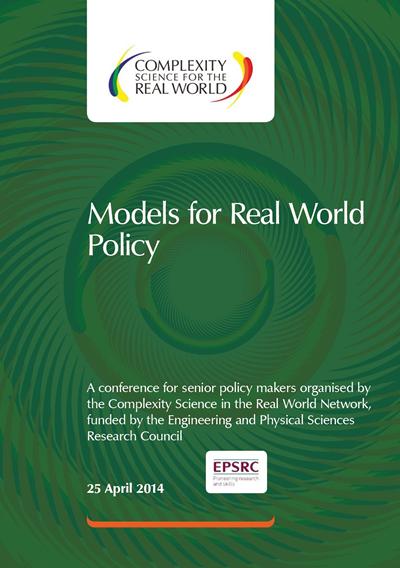The EPSRC Cross-disciplinary Interfaces Programme has funded four programmes of research within "Complexity Science for the Real World", of which the Care Life Cycle Project is one. Information on the other three programmes of research, and the collaboration between all four programmes can be found by following the links below.

Complexity Science for the Real World (CSRW)
The CSRW network brings together the four projects funded by the EPSRC's Complexity Science for the Real World programme.
A highlight was the 'Models for Real World Policy' conference which was held on 25th April 2014 at the Royal Society London. CLC researchers contributed to the event which included a talk by Professor Bernard Silverman, Chief Scientific Advisor to the Home Office. The event was attended by over 100 policy professionals and considered how policy making processes can benefit from new tools and thinking emerging from the study of complex social systems.
ENFOLD-ing
Based in CASA, the Centre for Advanced Spatial Analysis at University College London, researchers are developing a programme in global dynamics and complexity theory. Four related global systems are being studied - trade, migration, security (which includes crime, terrorism and military disputes) and development aid to model and understand global level dynamics. Further information is available on the Enfold-ing website
The Evolution and Resilience of Industrial Ecosystems
This programme, led by the University of Surrey, is modelling two real world case studies. The first is the 'Structure and dynamics of the Humber region' which is using complexity science techniques to support stakeholder decision making. The second project 'Food Supply Chains Complexity Analysis and Modelling' explores key questions within the arena of food security and sustainability. Further information on both these projects can be found on the ERIE website
The Social Complexity of Immigration and Diversity
With researchers based at the University of Manchester and Manchester Metropolitan University, this project is developing and applying novel tools and techniques from complexity science to model and understand the social processes relating to ethnic diversity and immigration. Further information can be found on the SCID website